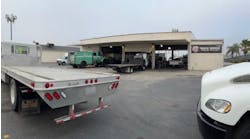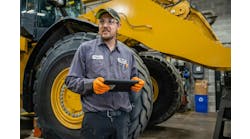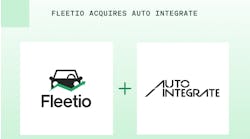The culture of an organization is something we know, but mostly feel, after only a short interaction with an employee. Culture is an intangible type experience that goes into our forming a first impression, and first impressions are crucial as they set the tone for future business relationships.
What you may not realize is the powerful influence a company's culture can have on its bottom line.
A strong, positive corporate culture can help reduce the rate of employee turnover, increase creativity, productivity and sales and enhance brand value, all of which ultimately impact a company's overall profitability. A poor culture has the opposite ramifications.
Basically, corporate culture represents the shared professional values, attitudes, standards, behaviors and beliefs a company adopts that dictate how it interacts with employees, vendors, partners and customers.
CASE IN POINT
W. M. "Rusty" Rush is president and CEO of Rush Enterprises, a full-service provider of product and solutions to the commercial equipment industry. He considers corporate culture a "soft" issue with hard consequences and devotes considerable attention to this element of the business.
"My grandfather used to tell me that a company's greatest assets are its people," he told me in an exclusive interview. "You have to recognize that, and you always have to develop your people."
Rush, whose father, Marvin Rush, started Rush Enterprises in 1965 to give customers better service through a network of truck dealerships, attributed much of the organization's success to finding good people, learning what their best talents and skills are, putting them in a position where they can excel and rewarding and recognizing them for their efforts.
With the right corporate culture, plus much business savvy, Rush Enterprises, headquartered in New Braunfels, TX, has grown to more than 100 locations and more than 4,000 employees. It operates North America's largest network of heavy and medium duty truck dealerships and is the largest PacLease dealer and Idealease dealer in the country.
PEOPLE DEVELOPMENT
Rush explained to me that retention of employees is based on their understanding the company's goals, communicating well with them - because communication is a major aspect of building trust and unity within a company's culture - and giving them the opportunity to succeed and advance their own careers.
It's all about doing what you say you're going to do, being clear about what you want and expect, and then creating systems to support that, such as hiring and reward systems, he said.
With technology growing at an increasing pace, and more government regulations, it is paramount to continually train technicians because "the service department is the heart of a dealership and we need to keep it healthy and strong," Rush said. "We invest in the training because we get a return on that investment. With highly trained technicians we can keep trucks up and running better than our competition."
RELATIONSHIP BUILDING
"The trucking business is a relationship business - with OEMs, customers and employees - and you need to have the best people working for you," said Rush. "One thing about the truck service business is that if you're good, it's a repetitive business. People know how good you are or how bad you are real quick, and you don't get a lot of second chances."
Moreover, he said that by having good relationships, a service provider can know how best to serve its customer.
"We understand that the customer is the boss. You can't lose touch with that and start trying to drive things to them and not listen to what their needs are," he explained. "Going forward, the most successful vehicle service providers will be those that provide solutions, rather than just products."
The reason being, said Rush, is that truck users are becoming more sophisticated in how they run their businesses. "They understand their true total cost of truck ownership, and that's not just capital costs and cost per mile. They want more consistent service, guaranteed time in and out of a shop and guaranteed prices - total solutions costs.
"The objective is to drive efficiencies and productivity to help bring down their overall costs, including costs in the back office - procurement, payroll and other business operations - to save them time and money.
"We need to comprehend how their businesses are changing and what their pain and pressure points are, and then figure out how we can help them."
By way of example, Rush noted that about a quarter percent of his 1,400 technicians don't work in shops. They are in the 200 mobile service trucks and working in customer shops.
SCORECARDS
"A business is a culture," summed up Rush. "Balance sheets and profit and loss statements are only scorecards. They only tell you what you did.
"What gets you to those scorecards is your culture and your people - how you go about doing business. That's what differentiates a business from its competition and helps it stay successful."
Organizations that are able to maintain a positive culture, like Rush Enterprises, reap many benefits. The work environment tends to be more enjoyable, which boosts morale. That leads to increased levels of teamwork, sharing of information and openness to new ideas.
This increased interaction among employees stimulates learning and continuous improvement because information flows more freely throughout the organization.
What's more, a positive culture helps to attract and retain top employees.
Given enough time and money, an organization's competitors can copy almost everything it has working for it and can hire away some of its best employees. The one thing that can't be duplicated is a company's culture.




